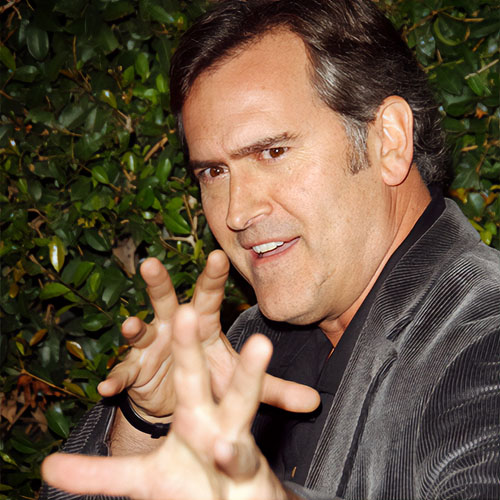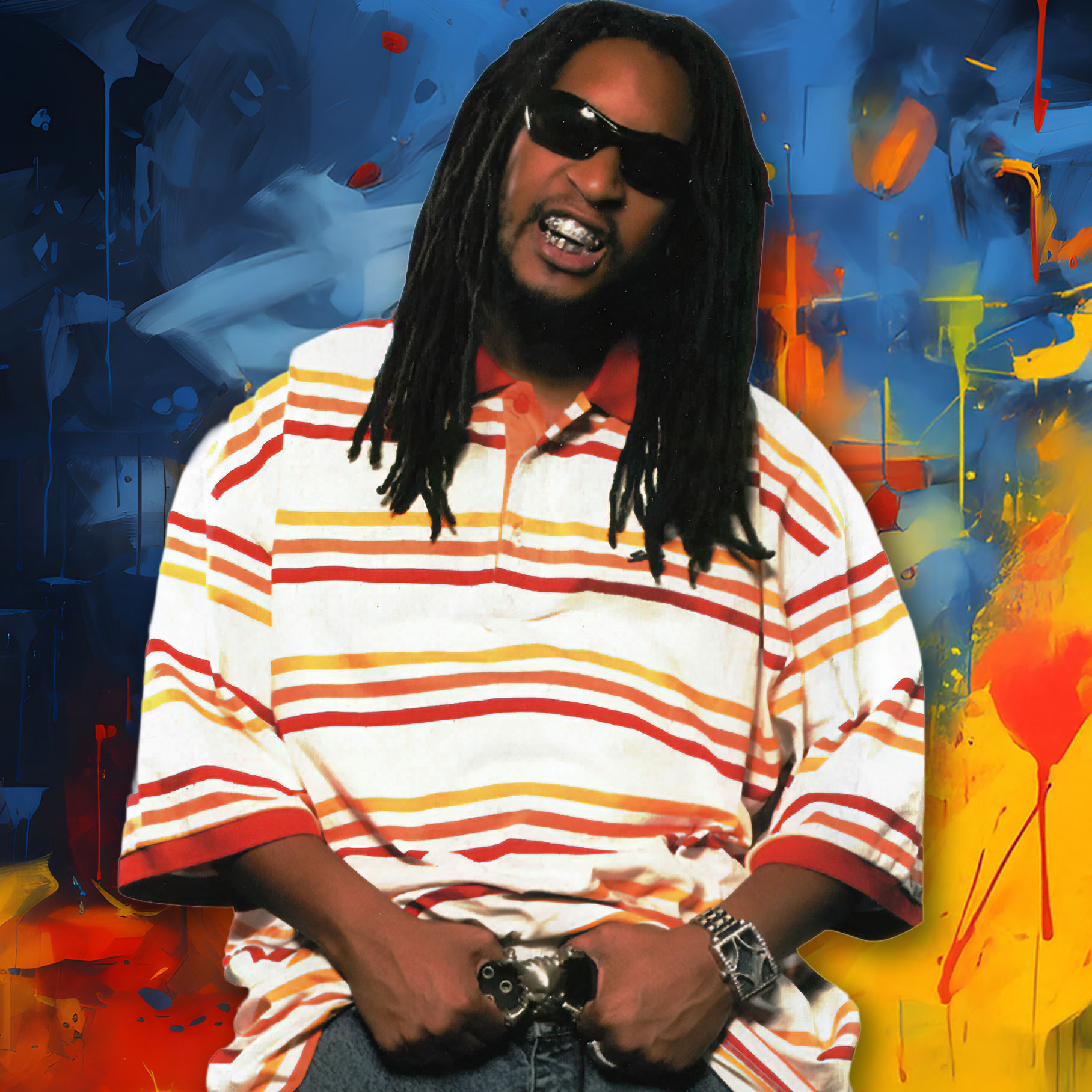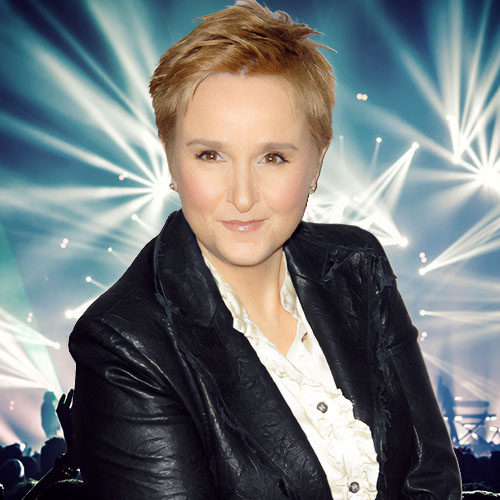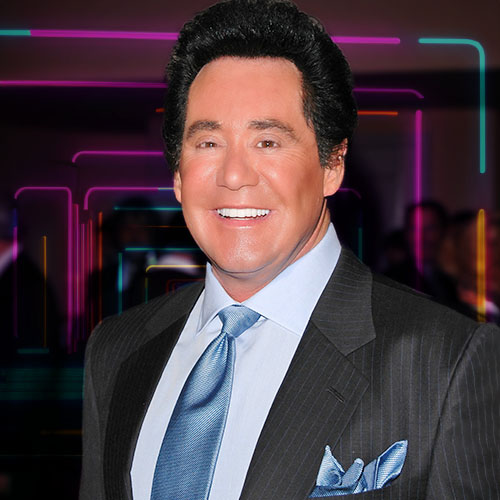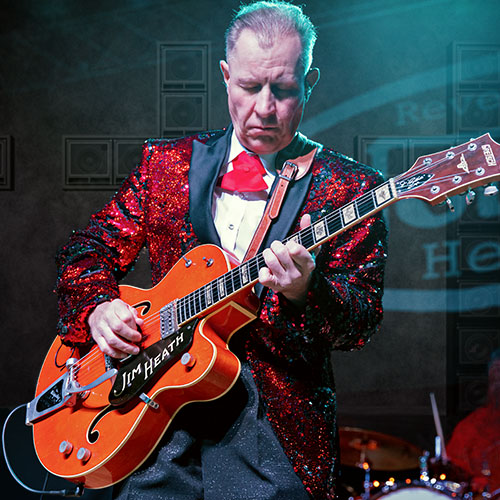The LoCash Cowboys sold more than 60,000 copies of a homemade CD at their shows, and they’ve racked up ten million YouTube hits. Now, their self-titled first album showcases the depth of their songwriting talents.
Fifty Shades of LoCash
Chris Lucas and Preston Brust, collectively known as the LoCash Cowboys, are at a Dunkin’ Donuts in Panama City Beach, Florida, trying to help this reporter distinguish between their voices on the phone. “How about if Preston talks in Spanish?” Lucas jokes.
Brust says he’ll just talk a little deeper: “You’ll think I’m Josh Turner by the time this interview is over.” [Turner is, of course, known for his deep voice.]
Though the LoCash Cowboys have had a fan presence for years now, thanks to such singles as “C.O.U.N.T.R.Y.” and “Keep in Mind,” they just released their first album, a self-titled effort, in June. Call it third time’s the charm, since their first two record labels bit the dust, the second one before Lucas and Brust even got into the recording studio.
They’ve also scored big as songwriters. In 2011, Keith Urban took their tune “You Gonna Fly” to No. 1, and Tim McGraw earned a gold-certified, Top 10 smash with 2012’s “Truck Yeah,” another of the duo’s collaborations. The theme song for Tanya Tucker’s reality show, Tuckerville, is theirs, too.
Now the guys are in line for their own television show, something that promises to capture the excitement they generated from their early days at Nashville’s Wildhorse Saloon, back in 2002, when Brust moved to Nashville and met Lucas, head of the club’s entertainment department. Lucas offered Brust a job as a deejay/dance instructor, and then one night they shared a microphone and something crazy clicked. But they’re also serious musicians.
“We want to show people that hey, yes, we do have that Big & Rich fun side about us, which sells tons of tickets, but we also have that serious side,” says Lucas.
“As much as I’d like to call this new CD Fifty Shades ofLoCash: The Album,” Preston adds, tongue firmly in cheek, “it’s true. There’s every shade of LoCash in there. I think we’ve done well on this album to show everybody who we are.”
How did you get your name? I’ve read that Preston was in some sort of gang with a similar name. Is that true?
PB: I hate to use the word “gang.” It was just a crew of guys in high school. More like a tree-house gang. We called ourselves the LoCash Money Boys, just because none of us had any money, and we were looking for fun stuff to do. And when anything cool happened for next to nothing, we’d say, “Man, that’s so LoCash,” and we’d all high-five. We had nicknames and we’d walk around the halls at school using those nicknames, and nobody knew what we were talking about. Eleven years later, I went to Nashville and met Chris, and we formed this duo. We tried all these different names, and none of them worked. And Chris came to my hometown with me one time, and he met some of the LoCash Money Boys. He said, “Dude, this is so cool! But I don’t have a nickname.” So we were like, “We’ve got to get you a nickname and make you a LoCash Money Boy.” And Chris said, “How cool would it be if we were the country boys of Lo Cash?” So we thought, Maybe we’re onto something. We went back to Nashville and told everybody, “We found our name, and it’s perfect! The LoCash Cowboys.” And every single person said, “That will never work.” We were way ahead of the curve. To this day, most of the people who said it would never work have forgotten they said that. Now they’re like, “Man, I just love that name! I knew it would work all along.”
Let’s talk about some of the songs. Your lead single is “Chase a Little Love.” Preston, you wrote this with Jaron Boyer.
PB: Yeah. It’s a cool love song. I love the passion of the innocent. It’s all about getting a kiss from this girl, but there’s so much passion behind it. You can feel it in the vocal performance and hear it in the lyrics. This guy is really into this girl. And then, from a production standpoint, it’s got the new feel, what everybody’s hearing today on country radio, with a little bit more energy behind it.
How do you define the “new feel” in country music?
PB: Edgier, with monster drums from eighties rock, almost like Def Leppard. Ear candy, with that pop-contemporary thing going, like new Blake Shelton. One thing that Chris and I are trying to do is build some integrity with some personality to it. Because a lot of people have the wrong perception of us, whether they think we’re country rappers, or hip-hop country, or whatever. While we do have fun, there’s never been rapping. We do have a high-energy show, and we love to rock the house, so everybody calls us a party band. But until we had a big hit on the radio, we had to make our own excitement. A lot of people are going to find out on this album that we’re established songwriters with serious songs.
You had a special guest on “Independent Trucker,” the late George Jones. What was that like for you? Did you meet him, or did he record his track elsewhere and send it over?
PB: Oh, no! He had me come into the vocal booth with him. I could tell he was really into the music, and that he wanted to help us, and he wanted to be part of it. He wasn’t going to walk away from that microphone without it sounding the way we all wanted us to sound. And he did it. He pulled it off. He sounds like the old George Jones on it.
CL: He nailed it. Jeffrey Steele wrote it [with Chris Stapleton], and we were like, “Jeff, we’ve gotta have this song!” And we said, “But we wanna get George Jones on it.” He said, “How are you gonna do that?” Preston was like, “George is a really good friend of ours. We’re gonna ask him.” And we just asked him and he said yes. It was a red-letter day for everyone. I’d never seen Jeffrey Steele act like a ten-year-old boy before, until George Jones walked into the studio.
‘“[George Jones] had me come into the vocal booth with him. He was really into the music, and he wanted to help us, and he wanted to be part of it. He wasn’t going to walk away without it sounding the way we all wanted.”’
Having country star and respected songwriter Jeffrey Steele so involved with your album as a producer and a writer on six tracks is a huge stamp of approval for the LoCash Cowboys. How did you meet him?
PB: Well, for years, we sat in that deejay booth at the Wildhorse when big-name concerts came in, just dreaming and wishing we could be on that stage. Then in 2008, we headlined the Redman & Maxim tour. Nashville was the big stop, the grand show of the 14-city tour, and we sold out the Wildhorse. That was the first time we’d been back to the club since we quit. It was a dream come true to walk on that stage and see the whole place sold out. John Rich was the host, and Jeffrey Steele had come with John to the show, not intending to stay long. But we didn’t know that. Well, we fired into our show, and girls crushed up to the stage, and we sang a Jeffrey Steele song. It was almost impossible to get up there, because it was just so packed with people. But right in the middle of the song, he fought his way to the front row, and ended up way off to my left. Now it’s all girls and one guy with crazy hair waving me down. And I’m like, “Who’s this guy? We’re gonna need security.” Then I recognized him by the tattoos on his fingers, because they spell out his son’s name, Alex, who died in an ATV accident. So I went over to him.
CL: Yeah, and I didn’t understand any of this, and I was P.O.-ed cause he left me holding a harmony note.
PB: Yeah, that was bad! Sorry, Chris. Anyway, Jeffrey started laughing and mouthing, “I get it! I hear it! I see it!” And he said, “Call me. All you need is the songs.” And he fell backward into the crowd. Which was great, except I was so excited I didn’t get the number!
CL: It took us three months to get the number. It’s a very protected phone number, and no one would believe our story. But now he’s our mentor. He calls himself the third LoCash Cowboy.
How did you two figure out you would be good together when you were first at the Wildhorse?
CL: We went out on a mike one day together, and the banter alone took everybody by surprise. We started pulling in people just to hear that, without us even singing. It took me back to the days when Frank Sinatra and Dean Martin had the crowd in the palm of their hand and made them part of the show. It’s really all about the crowd. It’s not about us. It’s about making people feel their lives are changing. That first day on the mike, we were both thinking, Crap, we’ve got something here, dude! I said, “I hope you sing.” He was like, “I do, do you?” And I’m like, “Yep,” and that’s the way it started.
How do the two of you work together?
CL: It’s funny how we play good cop/bad cop with a lot of stuff. It’s like Mom and Dad. And that would make you Mom, Preston.
PB: No, you would be Mom. I’m definitely Dad.
CL: It’s true. Everything we do, Preston is the one who talks a lot. He’s a salesman, man. He could be president. Seriously. And I would be more like the secretary of defense. That’s how we compare ourselves. He’s very politically correct, and I’m very, “Okay, we’re going to unleash Chris now.” And in different ways, I’ll be the politically correct one. It’s always been that way. It’s like yin and yang. We get along. Everybody has their arguments, but there’s never been a horrible argument, like, “I’m quittin’ this band.” And trust me, we’ve had every opportunity to quit and give up.
PB: Yeah, we thought we’d get another deal real easy, just like we got the first one. But it wasn’t so easy the second time around. So we ended up hooking a U-Haul to my Jeep and we hit the road, and we started doing shows all over America. That first year, we played a lot of clubs for 500 bucks. A three-hour show for 500 bucks. And it was a money-back guarantee. It’s kind of an interesting concept. Our booking agent came up with it. The club had to call the agent on Monday. And if the club didn’t like the show, they got their $500 back. If they did like the show, they had to book three more shows with increases in payment. We were ready and eager to go, but, man, it takes a lot of fortitude and dedication to pull off a tour like that. Because you definitely aren’t breaking even. The label is so impressed that we’ve been through so much in 11 years and still held it together, and haven’t let anything seep through the cracks. But we’ve also lost it all.
CL: People say, “You’ve got to lose it all to get it all,” and we really have lost it all. Personally, we’ve gone through money problems, we’ve lived off tuna fish, we’ve lived off macaroni and cheese, we’ve done it all.
PB: And to get deeper, we’ve lost faithful people. We had a fiddle player in our band, Ryan Jones. We called him Stormtrooper. He was with us seven years. He’s one of our brothers. And he suddenly passed away. This was in 2011. He got really sick July 4, and then he passed in October. That was tough.
CL: It was the same year my dad passed away, and my aunt died two weeks later.
PB: Yeah, all in the same year, the Troop passed away, we lost our deal, and the single “Keep in Mind” failed because the label didn’t have enough money to push it past [No.] 30 [on the charts]. And then the label put out another single that nobody heard about because it didn’t put any kind of promo behind it. So we watched that flop in the 5Os, and the label closed its doors. But then we got a phone call and the guy said, “This is Keith Urban. I’m releasing your song ‘You Gonna Fly’ as my next single.” That changed everything.
What kept LoCash together in the darkest days before that phone call?
CL: We leaned on each other, man, and the guys in the band. There were times when I needed it. I mean, losing my dad was just … he was my best friend. The guys who’ve been with us a while knew my father, and my aunt, and, of course, Troop, so we’ve had each other for support there. And being onstage really is like a drug. To see people sing your words and know that we’re doing something that’s much bigger than we are truly kept us going.
What are your musical backgrounds?
PB: I grew up in the Church of Christ, so I come with a gospel edge. My daddy’s a preacher, and I wasn’t allowed to listen to any secular music, really. I grew up with a hymnal. My great uncle was Albert E. Brumley, who wrote “I’ll Fly Away,” so we always had that gospel root in our family. There were more than 600 songs in my songbook at church, and I could sing all four parts to all 646 songs, because I was at church three or four times a week with my daddy.
CL: And I grew up with the spawn of Satan [laughs].
PB: We’ve got a little heaven and a little hell!
CL: I grew up with Motley Crue, Quiet Riot, and Whitesnake. They were my first concerts. I loved all that head-bangin’ stuff. I loved eighties rock and then got into R&B. I’m very versatile with all my music. Growing up, my grandfather made me listen to Frank Sinatra and Dean Martin, and after a week of that, I fell in love. To this day, I still listen to that. Good music is good music, whether it’s country, R&B, or hip-hop. I was a huge country boy, from Hank Williams Jr. to Joe Diffie to Tracy Byrd.
‘“A lot of people have the wrong perception of us, whether they think we’re country rappers, or hip-hop country, or whatever. While we do have fun, there’s· never been rapping. We have a high-energy show, and we love to rock the house.”’
How did you blend those tastes with Preston’s?
CL: We met in the middle. He started teaching me some gospel songs with great harmony, and I started teaching him some rock ’n’ roll. His favorite band right now is Motley Crue, and he doesn’t understand that they came out in, like, ’81.
PB: And Chris’s new favorite song is “Be With Me, Lord” [both laugh]. And “Jesus, Hold My Hand.”
CL: But the coolest way we met in the middle was that we both played country music, and we learned a lot from the harmonies of Boyz II Men. Those are some of the best harmonies in the world. And we learned from Garth Brooks. He’s the epitome of a country-music star. I watched him do it and I said, “I want to do this thing.”
PB: Even though my house was a gospel house, I found three country records hidden in the closet. My mom had bought ’em. We never talked about secular music, only gospel music. We had this little record player, and I would literally hide in the closet where the record player was and sit there in the dark and listen to these records over and over, real soft, so I wouldn’t get caught. It was Eddie Rabbitt’s “I Love a Rainy Night,” Willie Nelson’s “Angel Flying Too Close to the Ground,” and the Oak Ridge Boys’ “Bobbie Sue.” I remember when Chris and I were forming LoCash and we were putting our first show together. I said, “So what songs do you know?” And he had all these songs he could sing. And he said, “What songs do you know?” And I was like [laughs], “Bobbie Sue,” and “Angel Flying Too Close to the Ground,” and “I Love a Rainy Night.” And that was it, though I guess we could have done “Elvira” if we wanted to.
What does a preacher think of his son playing this kind of music for a living?
PB: Oh, he loves it. He comes out on the bus with us. He knows our tour schedule better than I do. He carries a printed schedule folded up in his front pocket. Kinda geeky, kinda nerdy, and he puts his reading glasses on and tells us where we’re going to be throughout the year. We’re living week by week, but he’s got it all figured out for the year. Besides, he’s not a fire-and-brimstone preacher.
CL: No, or Pops would have set me on fire by now!
You made your Grand Ole Opry debut on Mother’s Day weekend 2011. Was that a big thing for you, or do young artists think that’s just too hokey now?
CL: To play the Opry is like graduating college for any country-music artist.
PB: And on Mother’s Day weekend, with your mom in the crowd? It just doesn’t get any better.
CL: It was my dad’s dream to see us on the Grand Ole Opry, and he died a couple of months before that, so it was hard. We got to sing “Keep in Mind,” and I came off the stage crying. Everybody was there — my in-laws, my mom — and they were all giving me hugs. They said, “What’s wrong?” I said, “It’s a bittersweet moment.” And Preston looked at me and said, “Man, your dad’s got the best seat in the house.” And that’s how that song, “Best Seat in the House,” was created. It’s the most emotional song we’ve ever written, because it’s a true story. It’s strictly written for my father, but everybody can relate to it, because everybody’s lost someone, so everybody wants to believe that their loved one has the best seat in the house.
What sorts of odd jobs did you have before music worked out for you?
CL: I used to repair elevators, I sold carpet, worked in a candy store, and I was a tire specialist. My father used to say, “Son, it’s a great life, if you don’t weaken.”
Meaning alcohol and drugs?
CL: Uh-huh. And I never have, and that’s because of my dad and my mom. I played football and baseball a lot, and football helped me with my career more than anything, because of the discipline, the never giving up. I was the smallest guy on the team. And, let’s see … I worked at Six Flags in Maryland, and Busch Gardens and Kings Dominion in Virginia, Spirit Cruises, a lot of theme-park stuff. That also prepared me, because I learned how to sing harmonies and be out in front of millions of people.
PB: I worked at a candy store, too, and in a clothing store, and in the business department at Sam’s Club. I wrote my first song on the paper route. I was 11 or 12 years old, and I would be out there just humming stuff, passing time. When your daddy’s a preacher and your mother is a stay-at-home mom, there’s not a lot of money coming in. I have two brothers, and it was a work-together atmosphere. We all had paper routes, and that’s the only money we ever saw as boys. I don’t remember one day when my parents gave me an allowance, because it wasn’t there to give.
Chris, you’re from Baltimore, and Preston, you hail from Kokomo, Indiana. That’s where the eighties country star Sylvia was from. Did you see her in concert when you were growing up?
PB: I think only two music stars came to town when I was little. One was Huey Lewis and the News. The other was Sylvia. She gave a concert at Memorial Gymnasium [the high school gym]. and it was sold out. It was so cool to see the whole town show up at those shows. I remember thinking, Wow! What does it feel like to come home to Kokomo and be the local kid that made it? And I always wanted to do what she did because of that. Now Chris and I are doing the same thing. But I still haven’t met Sylvia.
Preston, you’re single, but Chris, you’re married, and you and your wife, Kaitlyn, have a young son, Caden. Are any of these new songs about them?
CL: Yeah, “You Make It Look Good” is about Kaitlyn. I literally was at the gym on the exercise bike, and my wife was running on a treadmill in front of me. And I thought, Man, who is that girl? She’s hot. I was like, Would I be attracted to my wife if I wasn’t married, and she walked into a gym? I closed my eyes and opened ’em back up, and I was looking at her running on that treadmill in her little workout outfit, and I was like, Man, she makes that treadmill look good!
It’s all about the girl.
Without commenting upon this last line — other than to point out how much “socially acceptable” has changed in just ten years — we will happily point you to the LoCash Cowboys website, Instagram, and even a place that (at least for now) you can catch their February 2023 single for free. … You never can tell about YouTube. Things change there. Oddly enough, many people will probably always identify with a (now named) “LOCASH” sort of existence. Beware, though, lest y’all git surprised: This here be dyed-in-the-wool, coondog-lovin, mud truck, pointy-boots, Country Music.
















